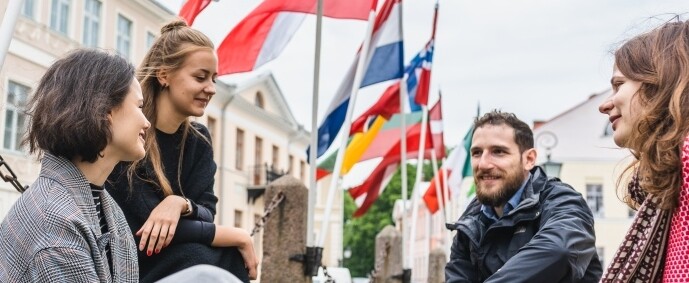Master of Arts in Humanities
Tartu Ülikool (UT)
-
Plaats Tartu, Estland
-
Degree Type MA
-
Start Date No info
-
Looptijd No info
-
Application Deadline No info
-
Taal Engels
-
Aanwezigheid On Campus
-
Toewijding Full time
-
Pace Instructor-paced
-
Tuition fees No info
Beschrijving programma
The European Languages and Cultures master's programme trains students to be cultural mediators (translators, administrators, editors, etc. ) by providing knowledge and skills in a modern or classical language and culture.
You can choose one of the following specialities:
- Classical philology
- English language and literature
- French language and literature
- German language and literature
- Russian and Slavic philology
- Scandinavian languages and literature
- Spanish language and literature
Classes in the speciality module are taught in the respective language (with the exception of Classical philology, which is taught in Estonian). That is, if you are specialising in English language and literature, your classes are in English, but if you are specialising in French language and literature, they are in French and so on. At the time of admission to the programme, being proficient in the language of the chosen specialty is expected and written as well as spoken language skills are to be demonstrated in the entrance exams (the essay is written and the interview conducted in the language of the speciality).
Students can combine elective courses and practical training module according to specific future career paths. For example, somebody who wants to work in an international organisation can pick an elective module in international relations and do an internship in an international organisation; somebody who wants to become an editor in a publishing house can pick an elective module in translation studies and do editing training. Graduates will be ready to continue their studies at PhD level in all languages of specialisation.
What will you get from this programme?
After completing the programme, you:
- are proficient in either English, French, Spanish, Russian, German or a Scandinavian language, know the culture and literature of the chosen language area and can compare cultures.
- are able to choose appropriate registers when communicating in the language of the speciality in speech or writing.
- have expertise in intercultural communication in its different forms (international relations, business, education, research, development or creative industries or other contexts).
- are ready for independent research and practical work in the fields requiring foreign language skills and cultural competence.
- have developed different transferable skills like intercultural communication competence, initiative, time planning skills, sense of responsibility, leadership and teamwork skills.



